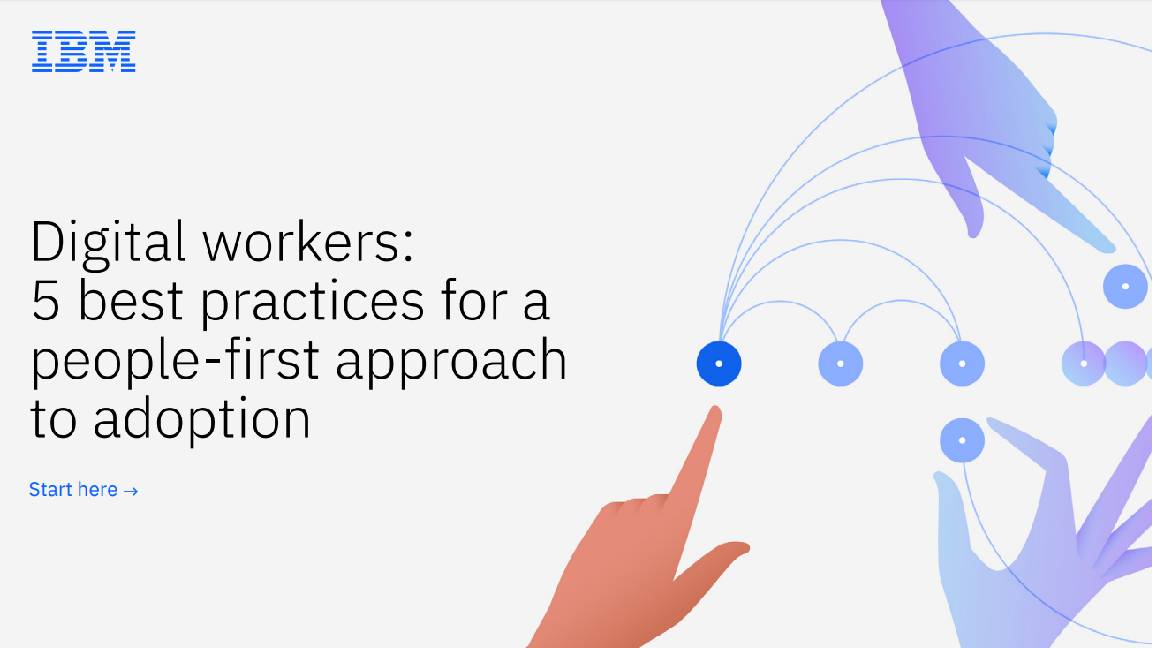Navigating a shifting SMB channel partner paradigm
SMBs will need to leverage powerful partnerships to stay ahead in the ongoing AI explosion


Strategic partnerships have long been key determinants of business success. In channel terms, however, focus typically centers on the advantages for technology vendors looking to get their products in the hands of more customers by forging ties with third-party resellers and distributors.
It’s not hard to understand what has influenced this one-sided perspective, with technology giants such as Microsoft commissioning entire reports to showcase the rewards other vendors can reap by joining their wide-ranging networks – including higher revenue from services to the tune of $8.45 for every $1 driven by Microsoft’s own suite.
But the narrative is shifting. Through 2025, we can expect to see an increasing number of companies looking to take on extra capabilities, especially small-to-medium players that need assistance to keep up with the continuing explosion of AI.
Grappling to get a workable grip on AI
As economic conditions regain stability, SMB attention is turning back towards growth. Most SMBs are aware that their expansion will depend on enhancing the value they provide – with one in five hoping to amplify new business next year through diversified products and services – and, for many, doing so means increasing AI adoption.

Fast-moving incorporation of AI into cross-sector processes from customer support to logistics is making it an essential competitive advantage. As a result, small business leaders have come to consider AI as crucial to future operational success and started to boost current investment. The challenge, however, is that they are struggling to convert soaring enthusiasm into effective action.
Recent studies reveal only 25% of UK firms are actively using AI, while 36% admit their AI projects so far have failed. One obvious reason for this imperfect progress is restricted finances. Given that typical tech budgets equate to around 5% of revenue, SMBs simply have less to spend on building bespoke, sophisticated tools than big tech moguls. But further problems stem from continued skills shortages, as highlighted by the fact 30% of company chiefs say they don’t have the in-house knowledge required to execute their AI plans.
What do partnerships bring to the table?
The main upside of forming channel partnerships is obtaining a larger toolkit without expensive research and development. This makes cost less of a barrier for SMB leaders who want to embrace emerging tools but feel their tech teams aren’t adequately prepared.
ChannelPro Newsletter
Stay up to date with the latest Channel industry news and analysis with our twice-weekly newsletter
Additionally, integrating pre-made tech enables SMBs to offer solutions that help them scale in line with evolving market needs, fill gaps left unaddressed by competitors, and cater to broader customers. Plus, with instant expansion allowing them to remain focused on their core products or services, they can ensure growth won’t compromise quality. For instance, a managed service platform that delivers healthcare software might team up with an AI-based IT vendor to offer augmented conversational support and intelligent security monitoring for its clients.

At the skills level, onboarding established solutions brings specialist knowledge that fuels benefits on multiple fronts. First, leveraging tools already supported by experienced data scientists, analysts, and machine learning engineers means SMBs can outsource day-to-day delivery and optimization, reducing the difficulties posed by a lack of internal AI proficiency.
Secondly, on tap access to professional expertise will give workers the opportunity to improve their individual abilities and understanding, better equipping them to navigate long-term tech transformation and minimizing recruitment issues for SMBs struggling to hire AI-savvy talent.
Selecting a suitable collaborator
Harnessing the positive potential above does require picking partners carefully. With global AI organisations totaling over 84,000 at last count, there is a danger that businesses overwhelmed by the ever-increasing volume of choice may be lured into selecting partners by the promise of buzzy features, rather than their capacity to generate real results.

Minimizing this risk will call for robust intentionality when defining the criteria for prospective contenders. For example, alongside ensuring vendors can walk the walk – i.e. providing fully functioning tech that delivers what it claims and hits business goals, and not just an enticing roadmap – companies must invest time in identifying their ideal customer profile and carefully evaluate whether solutions are a good match for specific needs, before penning agreements.
To cultivate mutual ongoing value, it’s also important to remember that effective channel partner relationships are meant to be symbiotic. Maintaining consistently transparent communication will enable productive collaboration rooted in shared trust, starting with encouraging open conversations around tech expectations, and running through to updates about both changing company requirements and how vendors are adjusting their tools to meet them.
RELATED WHITEPAPER

As an increasing number of firms embrace channel unions to maximize their revenue and reach, the industry is entering a new partnership paradigm. Over the coming 12 months, ever-climbing interest in AI will fuel greater steps from SMBs to find partners that can bridge tech and talent gaps, while fulfiling the demands of digital-first customers. But to ensure new ventures power lasting gains, companies will also need to prioritize the right partner balance: a blend of unique and cutting-edge innovation mixed with practical and tangible usability.

Michael Day is the vice president of Partner Sales at GoTo & head of sales for the LATAM and APAC markets. In this role, Michael is responsible for the strategy and execution of GoTo’s global partner program leading this Worldwide group with a focus to identify more ways for the growing ecosystem of partners to bring in more customers and increase revenue.
-
 What to look out for at RSAC Conference 2025
What to look out for at RSAC Conference 2025Analysis Convincing attendees that AI can revolutionize security will be the first point of order at next week’s RSA Conference – but traditional threats will be a constant undercurrent
By Rory Bathgate
-
 Ransomware attacks are rising — but quiet payouts could mean there's more than actually reported
Ransomware attacks are rising — but quiet payouts could mean there's more than actually reportedNews Ransomware attacks continue to climb, but they may be even higher than official figures show as companies choose to quietly pay to make such incidents go away.
By Nicole Kobie
-
 Turning the tide: the need for a digital detox in the wake of tech’s digital hangover
Turning the tide: the need for a digital detox in the wake of tech’s digital hangoverIndustry Insights With rapid technological advancements comes a surge in technical debt and failed digital transformation projects; the need for a strategic approach has never been greater
By Maksim Belov
-
 Seven pitfalls MSPs should avoid when building a resilient IT organization
Seven pitfalls MSPs should avoid when building a resilient IT organizationIndustry Insights Essential strategies to help MSPs strengthen IT resilience and ensure seamless business continuity
By Rob Dobson
-
 Governance, risk, and compliance is a major growth opportunity, but how will the market develop?
Governance, risk, and compliance is a major growth opportunity, but how will the market develop?Industry Insights As DORA, NIS2, and AI regulations shake up the compliance landscape, GRC could be a golden opportunity for the channel
By George Bonser
-
 Channel predictions 2025: an interesting year lies ahead
Channel predictions 2025: an interesting year lies aheadIndustry Insights Altnets, AI, and deeper integrations all make the list of things to watch out for in 2025
By Jez Pickering
-
 Selling on outcomes, not solutions – how the channel can improve sales success in 2025
Selling on outcomes, not solutions – how the channel can improve sales success in 2025Industry Insights The traditional solutions-led approach to channel sales needs to be adapted – here’s how
By Phil Skelton
-
 Bridging the IT skills gap: channel leaders should embrace platformization
Bridging the IT skills gap: channel leaders should embrace platformizationIndustry Insights Channel leaders need to focus on working with vendors that are embracing the industry's platformization push and help organizations contend with widening skills gaps
By Holly Anschutz
-
 How the channel helps organizations curb software sprawl by focusing on process
How the channel helps organizations curb software sprawl by focusing on processIndustry Insights Tool sprawl is bogging businesses down as they haphazardly add point solutions without concern, here's how the channel can help
By Christian Lucarelli
-
 How do you value your expertise when selling to experts?
How do you value your expertise when selling to experts?Industry Insights Selling your expertise can be difficult when dealing with IT-savvy customers, here's how service providers can prove their worth
By Bennie Grant